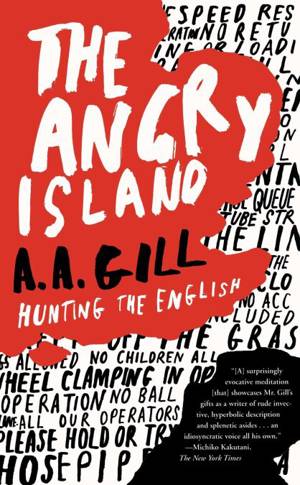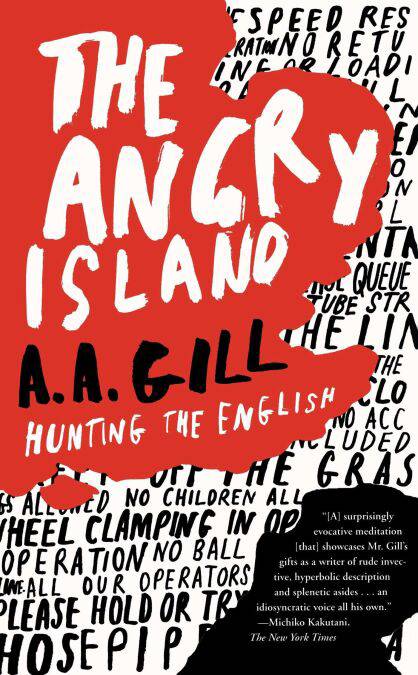
- Afhalen na 1 uur in een winkel met voorraad
- Gratis thuislevering in België vanaf € 30
- Ruim aanbod met 7 miljoen producten
- Afhalen na 1 uur in een winkel met voorraad
- Gratis thuislevering in België vanaf € 30
- Ruim aanbod met 7 miljoen producten
Zoeken
Omschrijving
Think of England, and anger hardly springs to mind as its primary national characteristic. Yet in The Angry Island, A. A. Gill argues that, in fact, it is plain old fury that is the wellspring for England's accomplishments.
The default setting of England is anger. The English are naturally, congenitally, collectively and singularly livid much of the time. They're incensed, incandescent, splenetic, prickly, touchy, and fractious. They can be mildly annoyed, really annoyed and, most scarily, not remotely annoyed. They sit apart on their half of a damply disappointing little island, nursing and picking at their irritations. The English itch inside their own skins. They feel foreign in their own country and run naked through their own heads.
Perhaps aware that they're living on top of a keg of fulminating fury, the English have, throughout their history, come up with hundreds of ingenious and bizarre ways to diffuse anger or transform it into something benign. Good manners and queues, cul-de-sacs and garden sheds, and almost every game ever invented from tennis to bridge. They've built things, discovered stuff, made puddings, written hymns and novels, and for people who don't like to talk much, they have come up with the most minutely nuanced and replete language ever spoken -- just so there'll be no misunderstandings.
The Angry Island by turns attacks and praises the English, bringing up numerous points of debate for Anglophiles and anyone who wonders about the origins of national identity. This book hunts down the causes and the results of being the Angry Island.
The default setting of England is anger. The English are naturally, congenitally, collectively and singularly livid much of the time. They're incensed, incandescent, splenetic, prickly, touchy, and fractious. They can be mildly annoyed, really annoyed and, most scarily, not remotely annoyed. They sit apart on their half of a damply disappointing little island, nursing and picking at their irritations. The English itch inside their own skins. They feel foreign in their own country and run naked through their own heads.
Perhaps aware that they're living on top of a keg of fulminating fury, the English have, throughout their history, come up with hundreds of ingenious and bizarre ways to diffuse anger or transform it into something benign. Good manners and queues, cul-de-sacs and garden sheds, and almost every game ever invented from tennis to bridge. They've built things, discovered stuff, made puddings, written hymns and novels, and for people who don't like to talk much, they have come up with the most minutely nuanced and replete language ever spoken -- just so there'll be no misunderstandings.
The Angry Island by turns attacks and praises the English, bringing up numerous points of debate for Anglophiles and anyone who wonders about the origins of national identity. This book hunts down the causes and the results of being the Angry Island.
Specificaties
Betrokkenen
- Auteur(s):
- Uitgeverij:
Inhoud
- Aantal bladzijden:
- 240
- Taal:
- Engels
Eigenschappen
- Productcode (EAN):
- 9781416545606
- Verschijningsdatum:
- 11/06/2007
- Uitvoering:
- E-book
- Beveiligd met:
- Adobe DRM
- Formaat:
- ePub

Alleen bij Standaard Boekhandel
+ 4 punten op je klantenkaart van Standaard Boekhandel
Beoordelingen
We publiceren alleen reviews die voldoen aan de voorwaarden voor reviews. Bekijk onze voorwaarden voor reviews.











